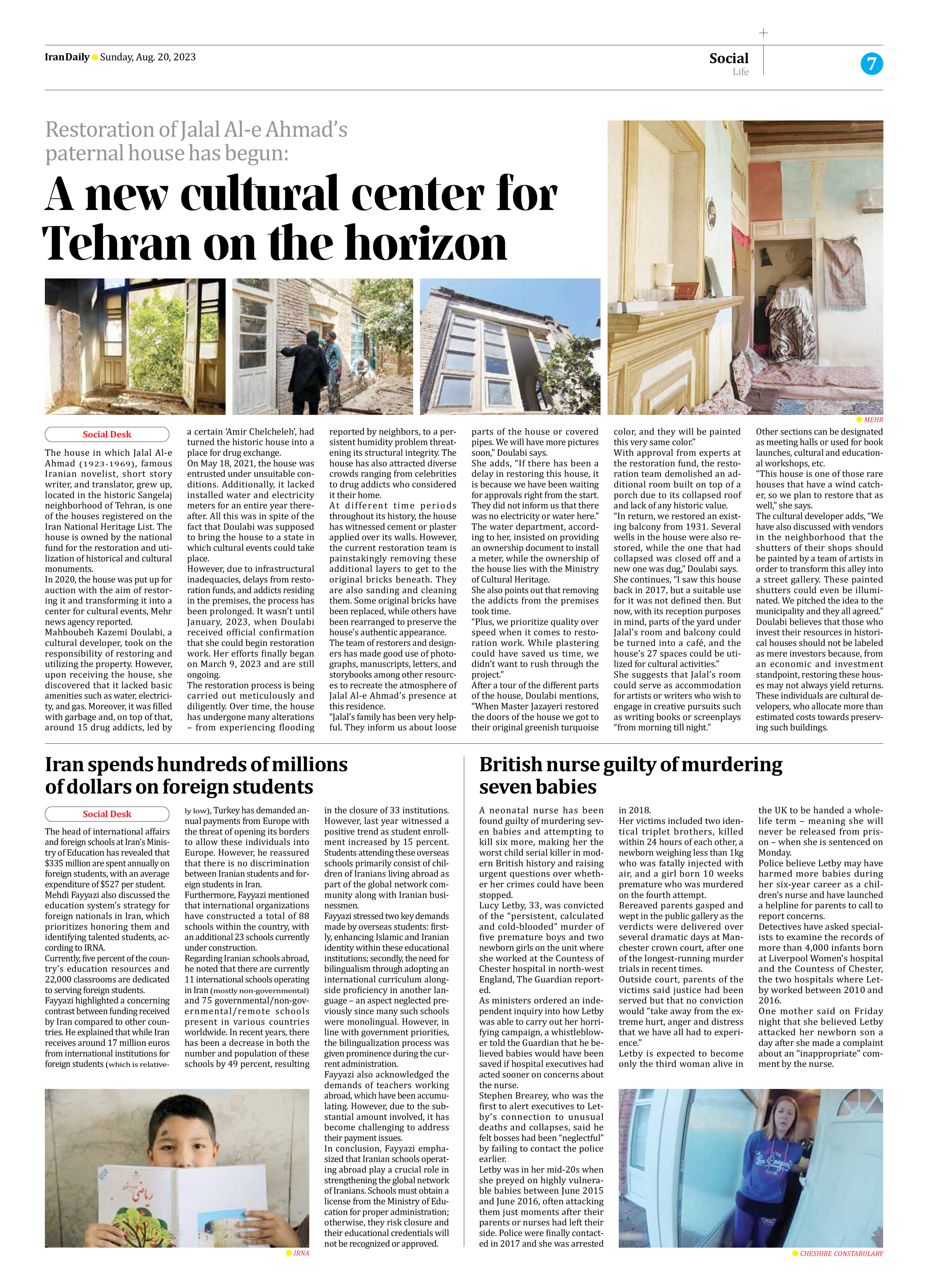
Iran spends hundreds of millions of dollars on foreign students
The head of international affairs and foreign schools at Iran’s Ministry of Education has revealed that $335 million are spent annually on foreign students, with an average expenditure of $527 per student.
Mehdi Fayyazi also discussed the education system’s strategy for foreign nationals in Iran, which prioritizes honoring them and identifying talented students, according to IRNA.
Currently, five percent of the country’s education resources and 22,000 classrooms are dedicated to serving foreign students.
Fayyazi highlighted a concerning contrast between funding received by Iran compared to other countries. He explained that while Iran receives around 17 million euros from international institutions for foreign students (which is relatively low), Turkey has demanded annual payments from Europe with the threat of opening its borders to allow these individuals into Europe. However, he reassured that there is no discrimination between Iranian students and foreign students in Iran.
Furthermore, Fayyazi mentioned that international organizations have constructed a total of 88 schools within the country, with an additional 23 schools currently under construction.
Regarding Iranian schools abroad, he noted that there are currently 11 international schools operating in Iran (mostly non-governmental) and 75 governmental/non-governmental/remote schools present in various countries worldwide. In recent years, there has been a decrease in both the number and population of these schools by 49 percent, resulting in the closure of 33 institutions. However, last year witnessed a positive trend as student enrollment increased by 15 percent. Students attending these overseas schools primarily consist of children of Iranians living abroad as part of the global network community along with Iranian businessmen.
Fayyazi stressed two key demands made by overseas students: firstly, enhancing Islamic and Iranian identity within these educational institutions; secondly, the need for bilingualism through adopting an international curriculum alongside proficiency in another language – an aspect neglected previously since many such schools were monolingual. However, in line with government priorities, the bilingualization process was given prominence during the current administration.
Fayyazi also acknowledged the demands of teachers working abroad, which have been accumulating. However, due to the substantial amount involved, it has become challenging to address their payment issues.
In conclusion, Fayyazi emphasized that Iranian schools operating abroad play a crucial role in strengthening the global network of Iranians. Schools must obtain a license from the Ministry of Education for proper administration; otherwise, they risk closure and their educational credentials will not be recognized or approved.







